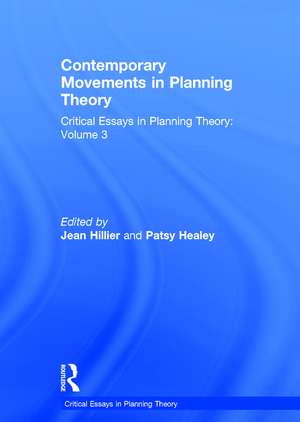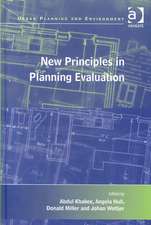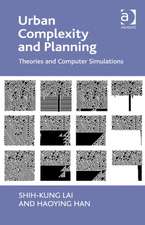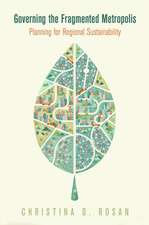Contemporary Movements in Planning Theory: Critical Essays in Planning Theory: Volume 3: Critical Essays in Planning Theory
Autor Patsy Healey Editat de Jean Hillieren Limba Engleză Hardback – 25 mar 2008
Preț: 1697.82 lei
Preț vechi: 2279.72 lei
-26% Nou
Puncte Express: 2547
Preț estimativ în valută:
324.87€ • 340.11$ • 268.81£
324.87€ • 340.11$ • 268.81£
Carte tipărită la comandă
Livrare economică 05-19 aprilie
Preluare comenzi: 021 569.72.76
Specificații
ISBN-13: 9780754627258
ISBN-10: 075462725X
Pagini: 574
Dimensiuni: 169 x 244 x 43 mm
Greutate: 1.29 kg
Ediția:1
Editura: Ashgate Pub Co
Colecția Routledge
Seria Critical Essays in Planning Theory
Locul publicării:Oxford, United Kingdom
ISBN-10: 075462725X
Pagini: 574
Dimensiuni: 169 x 244 x 43 mm
Greutate: 1.29 kg
Ediția:1
Editura: Ashgate Pub Co
Colecția Routledge
Seria Critical Essays in Planning Theory
Locul publicării:Oxford, United Kingdom
Cuprins
Contents: Introduction; Part I Communicative Practices and the Negotiation of Meaning: Introduction: The transactive style of planning, John Friedmann; Understanding planning practice, John Forester; A planner's day: knowledge and action in communicative practice, Patsy Healey; The argumentative or rhetorical turn in planning, James A. Throgmorton; Planning theory's emerging paradigm: communicative action and interactive practice, Judith E. Innes; Strategies, processes and plans, Patsy Healey; Consensus-building as role-playing and bricolage: toward a theory of collaborative planning, Judith E. Innes and David E. Booher; Communicative planning theory: a Foucauldian assessment, Raphaël Fischler; Strife: urban planning and agonism, John Pløger; Conflicting rationalities: implications for planning theory and ethics, Vanessa Watson. Part II Networks, Institutions and Relations: Introduction; Planning and the network city: discursive correspondences, Robert A. Beauregard; Postscript: a manifesto for a progressive networked urbanism, Stephen Graham and Simon Marvin; Network power in collaborative planning, David E. Booher and Judith E. Innes; Going round the back? Complex networks and informal action in local planning processes, Jean Hillier; The treatment of space and place in the new strategic spatial planning in Europe, Patsy Healey; Property rights, planning and markets: managing spontaneous cities, Chris Webster and Lawrence Wai-Chung Lai; The logic of critical communicative planning: transaction cost alteration, Tore Sager. Part III The Complexity 'Turn' - Hope, Critique and Post-Structuralism: Introduction; Towards a planning imagination for the 21st century, Leonie Sandercock; Urban informality: toward an epistemology of planning, Ananya Roy; Spaces of insurgent citizenship, James Holston; Coping with uncertainty in planning, Karen S. Christensen; Metaphors in complexity theory and planning, Angelique Chettiparamb; And if the global were small and noncoherent?
Notă biografică
Jean Hillier is Associate Dean and Chair of Sustainability and Urban Planning at RMIT University, Melbourne, Australia and Patsy Healey is Emeritus Professor at the School of Architecture, Planning and Landscape, University of Newcastle upon Tyne, UK.
Descriere
The third and final volume in this series covers Contemporary Movements in Planning Theory and topics include communicative practices and the negotiation of meaning, networks, institutions and relations, and the complexity 'turn'. The articles selected represent the most influential and controversial recent work in planning theory and are supplemented by detailed introductions by the editors.
























